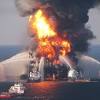As reported by 360, A Louisiana federal judge sanctioned Halliburton Co. for destroying evidence related to the 2010 Deepwater Horizon disaster amid a rash of decisions entered after the first phase of the trial on Thursday. U.S. District Judge Carl Barbier ordered the sanctions without detailing what they would be, while allowing motions to supplement the record of the first phase of the trial with details of Halliburton’s guilty plea to the destruction of evidence made last year. “The court finds that the deletion of the [evidence] was done intentionally and in bad faith,” the judge wrote. “The court also finds that this sanction does not amount to a default judgment, the dismissal of any of Halliburton’s claims or the disposal of any claims against Halliburton.” This latest blow to Halliburton comes just two days after the company agreed to pay nearly $1.1 billion to settle most private plaintiffs’ claims against Halliburton for its role in the disaster that sent millions of barrels of oil spewing into the Gulf of Mexico. That settlement didn’t address any claims brought by states or the federal government. It also comes as the judge ruled Halliburton to be 3 percent at fault for the incident and that BP PLC must indemnify and release Halliburton relating to compensatory damage claims.
As reported by the WSJ the Court also found “PLC was grossly negligent in the 2010 Deepwater Horizon disaster, …, handing down a decision that could cost the company as much as $18 billion in pollution fines for the Gulf of Mexico oil spill.Thursday’s decision could leave BP on the hook for far more than the $3.5 billion it had set aside for civil penalties under the U.S. Clean Water Act and likely would easily exceed the biggest previous fine under the statute.The $3.5 billion was based in part on BP’s expectation that the court would rule the company liable for simple negligence. U.S. District Judge Carl Barbier’s finding of gross negligence, or more reckless and extreme behavior, means BP faces a penalty of as much as $4,300 for each barrel of crude spilled in the worst offshore oil spill in U.S. history. That is nearly quadruple the maximum civil fine had the finding been simple negligence, which means the failure to take reasonable care.”





